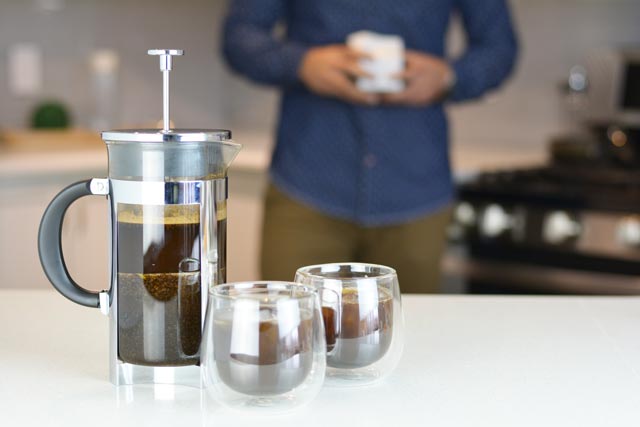Matcha, matcha, matcha! It's all of the rage. It may be from the numerous benefits it provides, the smooth taste it offers or from the spirituality and tranquillity associated with it. Nonetheless, cafes and restaurants around the world are working hard to learn how to make matcha green tea to keep up with the increasing trend. So what is it that makes matcha so special anyways?
In this post, we'll take a look at the caffeine levels, the benefits, storing it and how to make matcha green tea - the traditional way.
Matcha Caffeine
Looking for a caffeine boost? Matcha will give you just that. In terms of caffeinated beverages, matcha has less caffeine than coffee and energy drinks but has slightly more than cola pops. But don’t let that fool you- matcha will give you that burst of energy you’re looking for and what’s better - without the jitters.
According to the Caffeine Informer, the caffeine levels in matcha tea are 35 mg for one teaspoon of matcha powder.
This number may vary slightly depending on the grade of matcha you’re using.
Matcha Benefits
Matcha is known for the numerous health benefits it provides. It's rich in antioxidants, and among the most potent and beneficial is ECG. This antioxidant is essential for immune-boosting benefits which help to prevent and combat disease. It is also packed with high levels of chlorophyll which removes toxins from the body. Matcha is also high in L-Theanine which promotes relaxation without drowsiness and produces Dopamine and Serotonin which enhance mood, improve memory and promote concentration and alertness.
Matcha helps to improve the metabolism and burns calories, making it a key ingredient for weight loss.
If that's not enough, it provides sufficient quantities of potassium, Vitamin A, and C, Iron, protein and calcium.
Storing Matcha
Storing matcha properly is essential for maximizing the full benefits it provides and for maintaining its freshness. Matcha is more gentle than your traditional loose leaf teas, requiring extra care and attention. Unopened, matcha will last for up to a year, but after that, it begins to lose its freshness. Matcha powder does not like heat or light, so it’s important to keep it stored in a cool dark place and in a sealed airtight container after opening. Once it’s been opened, matcha is good for 2-3 months- oxygen will make it slowly degrade. Keeping it any longer, the matcha will begin to lose its taste, freshness, colour and health benefits.
How to Make Matcha Green Tea
Like all green teas, Matcha is very delicate. This means it’s important to pay attention to the temperate of water you use to brew it. For matcha the ideal brewing temperature is 80 C- any hotter, the matcha will taste bitter and astringent. This is because hot water shocks the tea and sometimes even burns the leaves, giving it that unpleasant taste.
Let's go ahead learn how to make matcha green tea.
What you'll need:
- Perfect matcha spoon
- Bamboo matcha whisk
- Samurai Matcha
- Matcha bowl
- Cyprus Mug

1) Add one matcha teaspoon of matcha into your bowl.
2) Using a bamboo matcha whisk, break down any tiny bumps in the powder until it’s smooth.

3) Heat 8-10 ounces of water to 80 C.
4) Once the water has reached its desired temperature, pour half the amount of water (4 ounces) into the matcha bowl.

5) Start to whisk immediately using brush-like strokes, creating a froth at the top.

6) Add the remaining water and continue to whisk until blended (approx. 30 seconds).

7) Pour matcha into your mug and enjoy!

Matcha brewing tips:
- If your matcha isn’t frothing properly, you make not have added enough matcha powder or you have too much water
- Break up the matcha clumps before adding water to help them dissolve easier
Go ahead and give it a try yourself- you’ll love it so matcha!
Up Next: How to Make Cold Brew Coffee in a French Press




Leave a comment
This site is protected by hCaptcha and the hCaptcha Privacy Policy and Terms of Service apply.